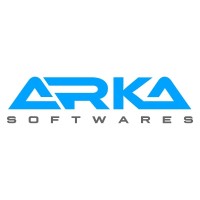No buyer guide found.
Top Software Development Companies
Developing software for your business or company is essential if you are looking for new opportunities and want to elevate your business to the next level. However, choosing a competent development company might take time and effort. It's only because every app development company nowadays has its own protocols, work ethics, work style, service offerings, and, more importantly, expertise. A dedicated software development company must keep up with every ...
Show MoreAll Services
List of the Top Software Developers
ScienceSoft is an amazing IT consulting and software development company. It was established in 1989 with a focus on delivering tailored IT solutions and services. Renowned for its comprehensive expertise, ScienceSoft caters to various industries, including healthcare, banking, retail, and telecommunications. Their service range is diverse, encompassing software development, cybersecurity, managed... Read More
Intellectsoft stands out in the tech industry as a comprehensive software development company established in 2007. Renowned for its expertise in crafting custom software solutions, the company excels in mobile app development, utilizing cutting-edge technologies like AI and Blockchain. Intellectsoft's approach is client-centric, focusing on creating solutions that align with specific business ... Read More
WillowTree, founded in 2008, is a digital product consultancy specializing in human-centered design. With over 1,000 digital experts, WillowTree operates 15 global studios and has successfully delivered over 700 projects. They focus on multidisciplinary teams to tackle complex challenges, combining expertise in strategy, design, engineering, marketing, and artificial intelligence. Known for rapid ... Read More
Zco Corporation, founded in 1989, is an innovative mobile app development company renowned for its comprehensive enterprise software development solutions. The company excels in a variety of services, including art and animation, virtual and augmented reality, and gaming services, catering to diverse sectors such as healthcare, education, e-commerce, and lifestyle. Zco Corporation is distinguished... Read More
Konstant Infosolutions, co-founded in 2003, is a leading software development company committed to transforming businesses with innovative mobile and web solutions. As a global brand, it thrives on a people-first, purpose-driven approach, aiming to expand organically by embracing a boundary-less workplace model to attract top talent worldwide. Specializing in a wide array of services such as on-... Read More
VironIT, founded in 2004, is a distinguished software development company based in New York, offering custom software development and IT outsourcing services. With a strong commitment to delivering tailored solutions, VironIT caters to a diverse clientele, ranging from individuals and startups to small and medium-sized businesses. The company prides itself on completing over 600 projects, thereby ... Read More
Clavax, established in 2011 and headquartered in San Jose, California, is renowned for its innovative approach to delivering enterprise solutions that significantly enhance client business operations and impact lives positively. The company prides itself on a team imbued with imagination, knowledge, and extensive experience across various technologies, ensuring each project undertaken is handled ... Read More
Simpalm, founded in 2010, is a leading technology company headquartered in Rockville, Maryland. It specializes in developing innovative mobile apps and web solutions. With a passionate team of developers, designers, and strategists, Simpalm is dedicated to transforming ideas into powerful, user-friendly digital products. Since its founding, the company has been at the forefront of creating custom ... Read More
Appinventiv is a dynamic digital innovation and transformation company that was founded in 2015. With a robust foundation in technology and innovation, Appinventiv aims to drive significant change by assisting businesses and individuals in embracing and adapting to digital transformation. The company is renowned for its ability to understand businesses' unique challenges & objectives and then ... Read More
MindInventory, founded in 2011 and headquartered in Ahmedabad, India, is a versatile company offering a range of services, including enterprise web development, startup consulting, mobility solutions, and UI/UX consulting. The company caters to business enterprises with a broad spectrum of services that encompass web and mobile app development, cloud computing, product engineering, digital ... Read More
TekRevol stands out as a comprehensive software development company that caters to both startups and established organizations seeking innovative digital transformation solutions. Founded with a vision to revolutionize technology and make a significant impact in various sectors, TekRevol offers a wide array of services, including mobile app development for iOS and Android, game development, web ... Read More
Clarion Technologies is a leading software development company that provides tailored digital solutions to businesses worldwide. Established in the early 2000s, Clarion has carved a niche for itself by offering a suite of services that include web and mobile application development, cloud strategies, and Agile IT outsourcing, particularly through its unique model of Client-centric Dedicated Teams... Read More
Apiumhub, headquartered in Barcelona, Spain, is a dynamic software development hub established in 2014. It specializes in delivering a wide array of services, including software architecture, web and mobile application development, and QA software test automation. By fostering a community of expert software developers and architects, Apiumhub ensures the delivery of scalable and robust software ... Read More
Dev Technosys is a renowned IT service provider founded in 2010, with its headquarters in Jaipur, India. The company specializes in web development, web designing, software development, and SEO services, catering to a global clientele with a commitment to projects that exceed client expectations. Its team comprises experts from various fields, ensuring innovative and quality solutions across ... Read More
Dash Technologies, established as a global professional services company, is renowned for its innovative approach in assisting businesses to enhance their data utilization through bespoke software solutions. Recognized for its expertise in technology, Dash Technologies excels in transforming business challenges into cutting-edge technology solutions. The company’s services encompass a wide ... Read More
Intuz is a distinguished technology company founded in 2006 and headquartered in San Ramon, California, with additional offices in San Francisco and Ahmedabad. The company excels in creating and delivering innovative digital products, focusing on IoT (Internet of Things), mobile and web application development, blockchain, social media marketing, cloud migration, and search engine optimization. ... Read More
Net Solutions is a dynamic company specializing in delivering tailored outsourced product development, e-commerce solutions, user experience design, and mobility services. Founded in 2000 and headquartered in India, with offices across the globe, including Los Angeles, New York, Toronto, and London, the company has established itself as a trusted partner for enterprises, agencies, and startups. ... Read More
The NineHertz, founded in 2008 and headquartered in Cincinnati, Ohio, is a prominent IT consulting firm celebrated for its innovative digital solutions. The company boasts a robust team of over 575 developers, designers, and innovators who have successfully delivered over 1800 projects with an astonishing client retention rate of 92%. They are known for transforming ideas into reality with the ... Read More
FATbit Technologies, established in 2004, is recognized for its expertise in web design and development, along with a broad spectrum of in-house products tailored for entrepreneurs aiming to launch online marketplaces for product selling, renting, cab booking, food ordering, and more. With its headquarters in India, FATbit offers a wide range of technology solutions, focusing primarily on ... Read More
Altoros, established in 2001 and headquartered in Pleasanton, California, is a leading provider of software product development services. The company specializes in engineering core product development, creating functional modules, tools, adapters, and technology plug-ins, along with offering migration services and re-engineering for functional or architectural enhancements. Altoros also delivers ... Read More
ARKA Softwares, established in 2010, is recognized for its expertise in web and mobile development solutions. As an ISO 9001:2015 certified company, it has a team of over 120 passionate developers and designers across offices in India, the USA, UK, and Australia. The company has successfully delivered 650+ projects, achieving a client retention rate of 78%. ARKA Softwares offers a wide range of ... Read More
Emizentech, established in 2013 in Jaipur, India, is renowned for its e-commerce web and app development services. The company specializes in delivering solutions across various platforms, including Magento, Salesforce, Liferay, Python, and Laravel. With a team that embodies values such as authenticity, transparency, and commitment, Emizentech focuses on creating unique and innovative solutions. ... Read More
Intelegain Technologies, established in 2004 and headquartered in Turbhe, New Mumbai, is a versatile technology company specializing in custom software, mobile, and web applications development. It provides a wide array of services, including staff augmentation, cloud services, digital marketing, and systems integration. Catering to a diverse set of industries such as accounting, logistics and ... Read More
Itexus, established in 2013, has made a significant impact in the custom software development industry, focusing primarily on web and mobile application development. The company prides itself on its ability to deliver comprehensive solutions across various domains, such as corporate websites, Intranet portals, enterprise applications, and cross-platform services, with a special emphasis on scoring... Read More
Scand is an established software consulting and development company that has been active since 2000. The company specializes in IT outsourcing services, focusing on software application and product development across a variety of technologies, including .NET, Java, PHP, and C++. With a solid track record of over two decades, Scand has successfully completed more than 700 projects for clients ... Read More
























